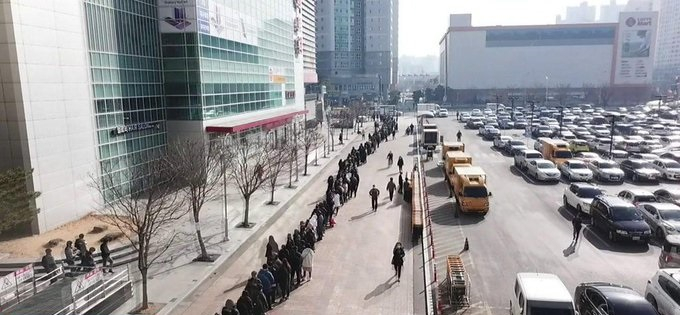South Korea on Sunday confirmed the smallest daily rise in the number of coronavirus or COVID-19 in three weeks as tighter restrictions cap a second wave. The Korean Center for Disease Control and Prevention (KCDC) confirmed 167 new cases of the virus in the last 24 hours till midnight on Saturday. This brought the total number of infection cases to 21,177 with 334 deaths.
The success of the nation in the crushing early outbreaks of the virus was partially reversed by a wave of the cases in mid-August that started at a church. The cases spiked at 441 in late August but since then that time tougher social distancing rules have taken effect.
"With stricter social distancing rules, new coronavirus cases have continued to drift down and we expect to see drops in new cases," Sohn Young-rae, a spokesman for the South Korean Ministry of Health and Welfare, stated in a briefing as reported by the Reuters.
COVID-19 in South Korea

The government extended the curbs until September 13, saying more time is required to induce sharper drops in new cases. The measures have included the restrictions on the eateries in South Seoul, where the spread is concentrated, putting a ban on onsite dining after 9 pm and limiting coffee and bakery franchises to takeout and delivery throughout the day.
The health officials recommended that people must not return to their hometowns or visit relatives for the Chuseok holiday, which is the Thanksgiving holiday of South Korea, but stated that they are going to stop them from doing so. The holiday starts at the end of September and lasts until early October.
The efforts of the country to fight the coronavirus have been complicated by a strike of 16,000 interns and resident doctors who oppose the plans of the government for reforming the medial sector to better handle future epidemics.
The top medical body agreed to end the walkout on Friday, only to witness an immediate backlash from the trainee doctors who dismissed the deal and continued the strike. The trainee physicians do not have any plans to comply with the agreement and plan to decide when to return to work on Monday, Yonhap news agency confirmed on Sunday.
The government of the country and the ruling party Democratic Party on Sunday came into an agreement to pursue a fourth supplementary budget that is worth over seven trillion won ($5.90 billion), most of which is going to be funded by the treasury bonds, a spokesperson of the Democratic Party said in a statement. The party is planning to submit the budget plan to the parliament this week for implementation before the Chuseok holiday for providing emergency support for people impacted by the coronavirus.
(With agency inputs)









